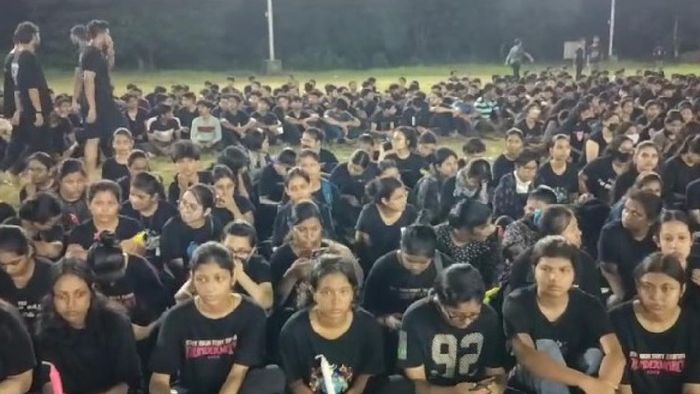Assam: Chaos at NIT Silchar as students clash with police following campus suicide
The incident unfolded when a student from Arunachal Pradesh was found dead by suicide in Hostel 7 of NIT Silchar.

- Sep 16, 2023,
- Updated Sep 16, 2023, 9:03 PM IST
The campus of the National Institute of Technology (NIT) Silchar was marred by chaos as students took to the streets in protest after a tragic incident of suicide. The death of a fellow student led to a violent confrontation with the police, resulting in injuries to over 40 individuals.
The incident unfolded when a student from Arunachal Pradesh was found dead by suicide in Hostel 7 of NIT Silchar. The student, a third-year enrollee at the institution since 2020, had reportedly faced challenges related to poor internet connectivity in his hometown during the pandemic, hindering his ability to attend online classes. This connectivity issue led to academic setbacks, including backlogs, and hampered his progression to the next semester.
Frustrated by these difficulties, the deceased student met with his peers on September 15 morning to advocate for the promotion of students with academic backlogs. Allegedly, the NIT authorities responded with indifference and used derogatory language during the encounter, further fueling tensions.
The situation escalated later in the day when a fellow student discovered the scene in the victim's room—a life lost to suicide. The news of their peer's death triggered outrage among the students, who began to protest against what they perceived as the institution's insensitivity and indifference.
As the protests grew more intense, police was called in to restore order. The police resorted to lathi charges as the demonstration turned violent. In the midst of the chaos, several vehicles were vandalized, and hostel property was damaged by the agitated students.
A delegation consisting of Anmol Mahatva, the Deputy Commissioner of Kachar district, and Rohan Kumar Jha, the Superintendent of Police for Kachar, visited the NIT Silchar campus to assess the situation. To maintain peace and security, a contingent of Central Reserve Police Force (CRPF) personnel was deployed.
The police lathi charge resulted in injuries to more than 40 NIT students. Some of the wounded were admitted to Silchar Medical College, while others received medical treatment and were subsequently released.